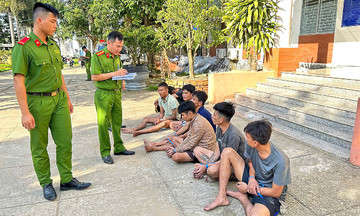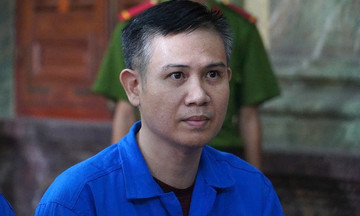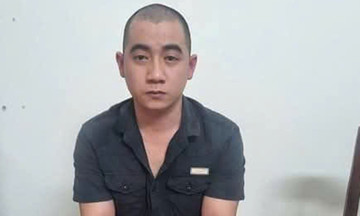In 9/2024, Tran Thi Kim Loan purchased two plots of land in the former Kien Bai commune, now Thien Huong ward, Hai Phong. While finalizing the transfer paperwork, she discovered a two-story house under construction on one of her plots. Do Van Huu was building the house.
Loan contacted Huu multiple times and filed a report with the Kien Bai Commune People's Committee (UBND). However, construction continued despite the authorities' requests to stop. Loan filed a lawsuit to reclaim her land.
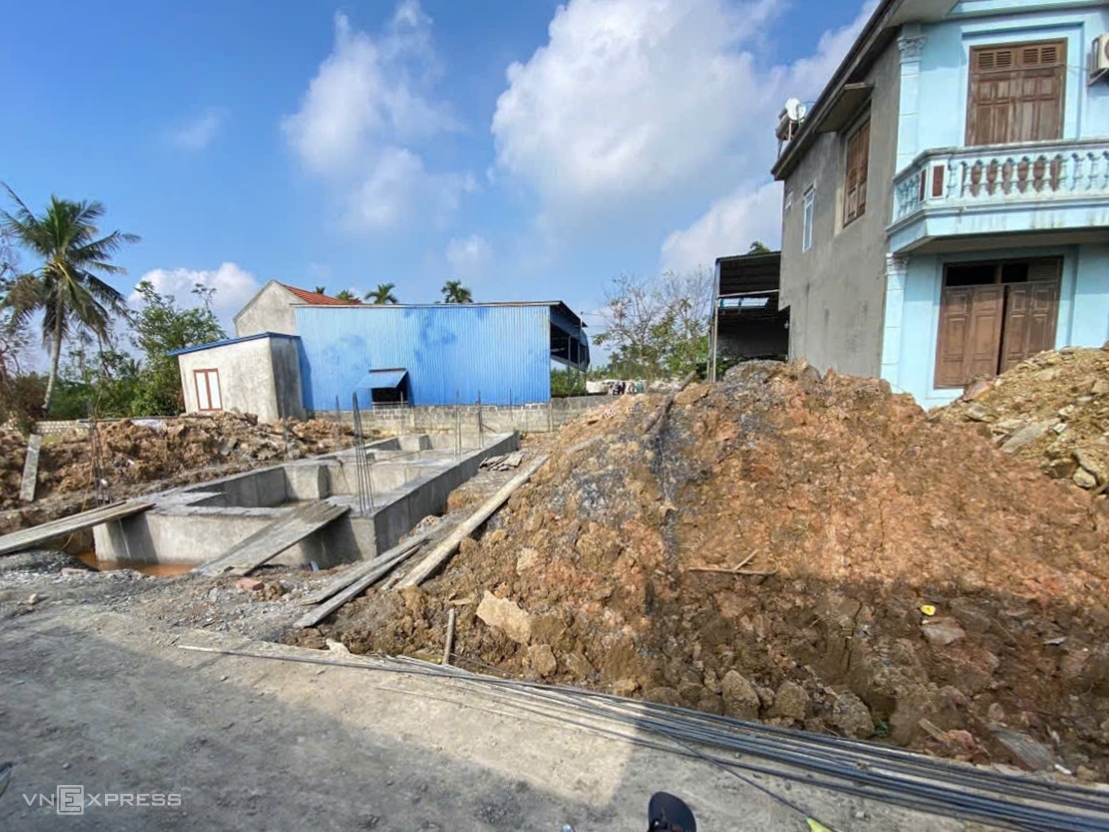 |
The foundation of the house Huu built on Loan's land at the time of discovery. Photo: NVCC |
The foundation of the house Huu built on Loan's land at the time of discovery. Photo: NVCC
At the first-instance trial in 8/2025, Huu admitted to building on the wrong plot. He proposed a land swap or financial compensation equivalent to the plot's value (approximately 550 million VND) to keep the house.
The court ruled that Huu's construction infringed upon Loan's legal land rights, ordering him to demolish the entire structure and return the land.
Huu appealed the verdict.
'Mistaken construction is unlikely'
Lawyer Pham Ngoc Hai from Thang Long Legal Consultancy Center called the case unusual. Building on the wrong plot is rare, as buyers typically inspect the location before purchase. Landowners also obtain land use certificates and building permits before construction.
According to the initial ruling, Huu stated he built the house without a land title, relying on a broker's guidance. He claimed to be unaware of the broker's current whereabouts or contact information.
Hai explained that if Huu agreed to purchase plot 2 but received plot 6's title, the broker's role needs investigation. If deception occurred, Huu could sue the broker for damages.
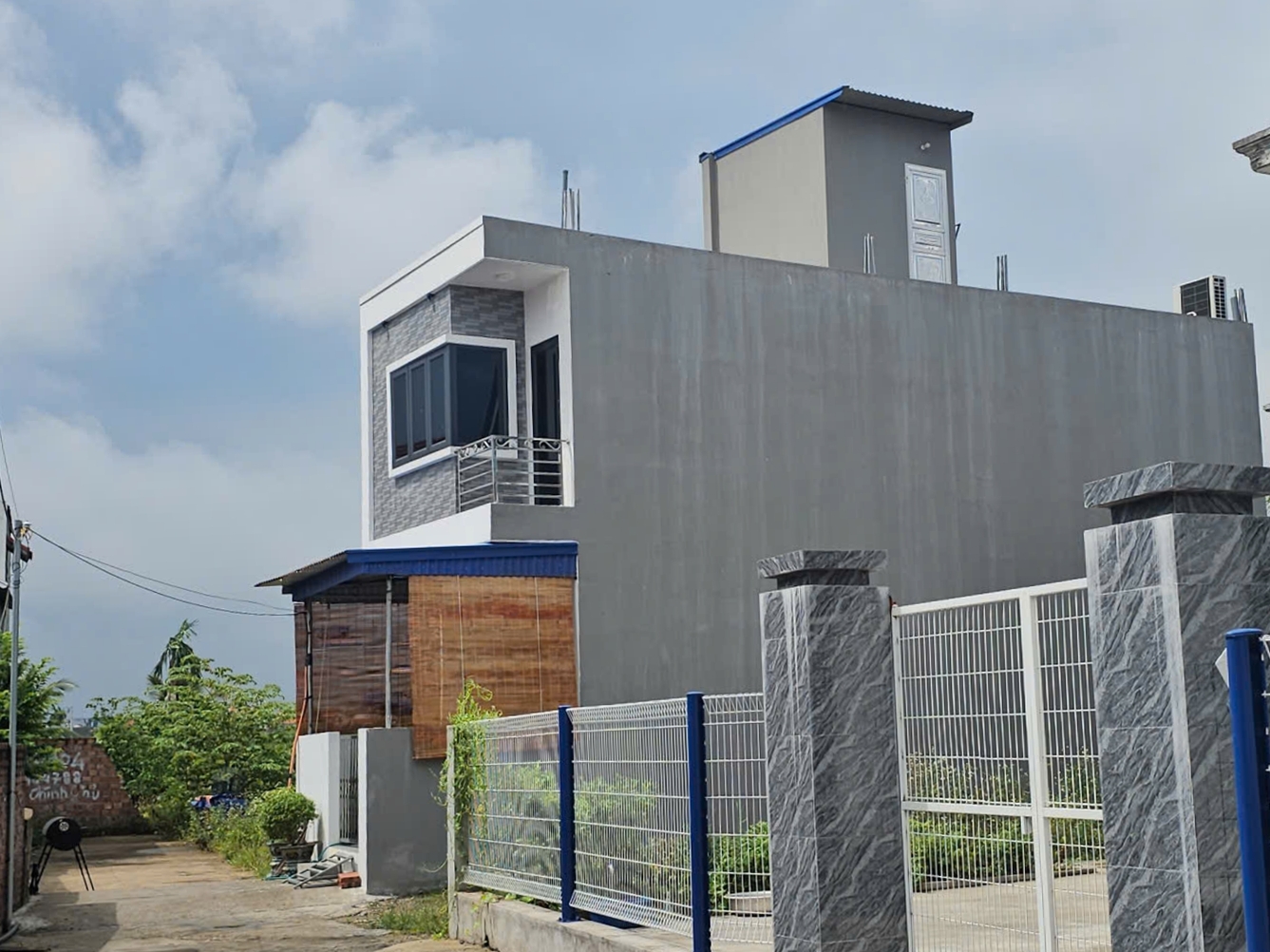 |
The completed house mistakenly built on the wrong land. Photo: Le Tan |
The completed house mistakenly built on the wrong land. Photo: Le Tan
Huu has appealed the initial verdict. If the appellate court upholds the ruling and Huu refuses to comply, he will face forced demolition, bearing all associated costs.
"I believe the parties should reconcile to minimize losses," Hai suggested.
Regarding potential criminal charges, Hai explained that if criminal violations are discovered during civil proceedings, the court can transfer the case to investigative authorities.
Protecting the rights of the title holder
Lawyer Le Hang from TAT Law Firm believes the actions were intentional. Construction continued despite the commune authorities' order to stop.
Hang believes the initial ruling to demolish the structure and return the land to the rightful owner upholds a fundamental principle: the absolute legal protection of certified land ownership.
"The initial ruling is reasonable. Legalizing the violation due to high demolition costs would set a dangerous precedent: build illegally and then buy the land," Hang stated.
To prevent similar situations, Hang emphasizes careful due diligence. Buyers should verify land records and boundaries, not relying solely on brokers. Builders should verify building permit legality.
Hang recommends examining the local authorities' role and accelerating land data digitization and cadastral mapping for public access, reducing errors.
According to Hang, law truly protects citizens' rights only through consistent and strict application. The initial ruling (though not yet legally effective) affirms that "established facts cannot legitimize violations." Land being most families' primary asset, errors in land management and infringements have severe economic and social consequences.
Le Tan







